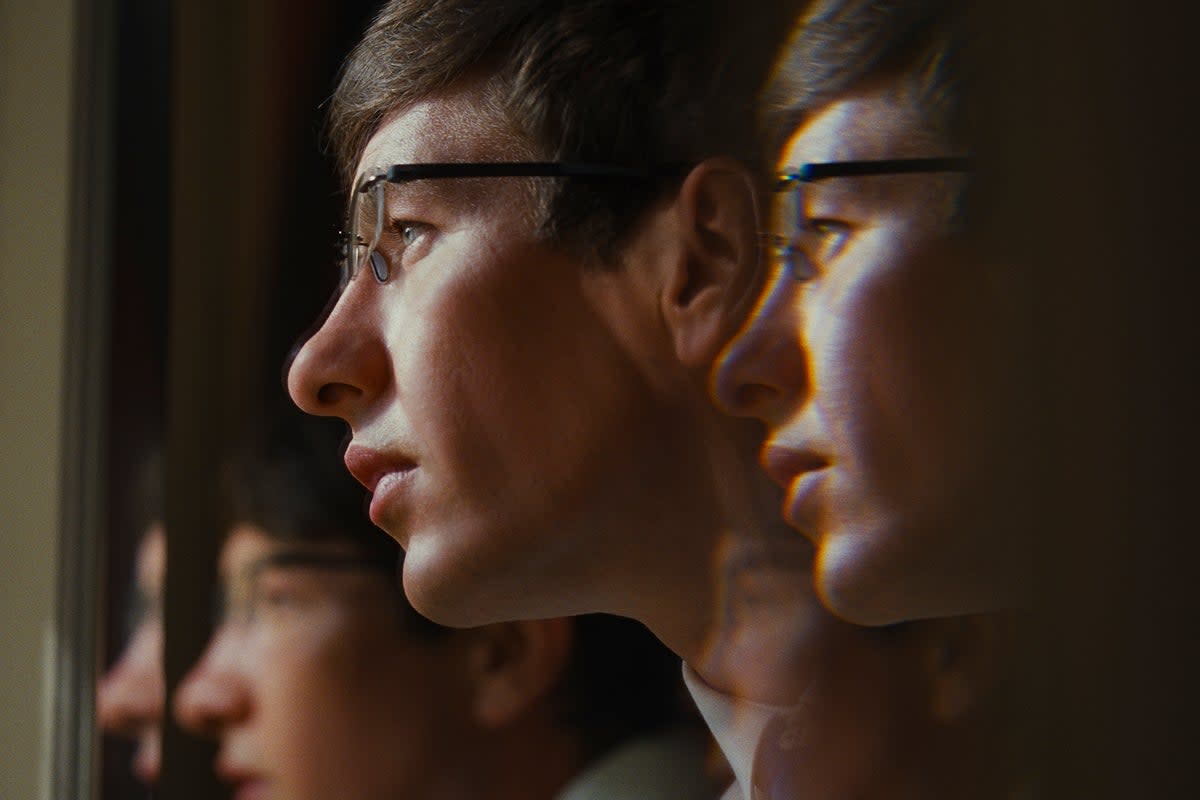Saltburn review: Emerald Fennell’s posh thriller is an inconclusive class satire, but also great fun

When Emerald Fennell let loose on the world her directorial debut, 2020’s Promising Young Woman, the reaction to it quickly turned into an all-out brawl. A woman fakes intoxication in order to trap and confront predatory men, and is drawn into a dead-end act of revenge against the man who sexually assaulted her best friend. Was this a feminist triumph? Or a betrayal of those same ideals? I thought it was neither, really – more a very sad story in neon-pink attire, about a grief-torn avenging angel who’s actually engaged in a protracted form of self-harm.
It wasn’t a film driven by political thought but by pure emotion. And I think that, too, is the best approach to take with Fennell’s follow-up, Saltburn. As a class satire, it reaches no conclusions. But it’s filled to the brim with darkly funny, bile-slicked revulsion. For its director, who hails from the same upper classes she targets, it’s an act of self-excavation.
Barry Keoghan, one of our greatest working weird guys, stars as the canniest of cuckoos in the nest, someone embedded in a family of blue bloods so used to casually manipulating others that they’re utterly defenceless when the tables are turned on them. He plays Oliver, a scholarship student at Oxford in 2006 (the timeline here is largely an aesthetic choice, an opportunity for wrists to be stacked with festival bands and for Bloc Party’s “Modern Life” to blare on the soundtrack). He ingratiates himself with the popular and pretty Felix (Jacob Elordi), and is invited to summer at his family’s estate, Saltburn.
Oliver settles in with the rest of Felix’s empty-headed clan: sister Venetia (Alison Oliver), mother Elsbeth (Rosamund Pike), father Sir James (Richard E Grant), American cousin Farleigh (Archie Madekwe), and oddball family friend Pamela (Carey Mulligan), who dresses like a pantomime fortuneteller and hangs around the house like a barnacle on a warship. And, when the opportunity strikes, Oliver lets all hell break loose.
You may feel an ounce of pity for these people, but little more. They’ve grown up so walled off from the world that all they can do is observe Oliver with intense, anthropological fascination. Felix perks up when Oliver shares his family’s history of mental health issues, then mourns the fact the only loss he’s ever experienced is that of his childhood pooch. Fennell colourfully constructs these elite spaces, in which “just f*** off and do History of Art” is a real insult, and where the truly, truly privileged own the smallest televisions. She knows how to pick her actors, too, though Pike is the absolute highlight – luminously awful, every sentence dripped with judgement.
Saltburn invites explicit comparisons to The Talented Mr Ripley and Brideshead Revisited, especially in the way it teases and toys with Oliver and Felix’s sexual desires. Mostly, it’s an excuse to render this battle for domination through carnal terms, and Saltburn is undoubtedly high on the list of films this year in which nasty sex things happen. One scene involves bathwater, another grave dirt.
Yet there’s another, more revealing reference hidden at the centre of the film’s hedge maze: a statue of the Minotaur. Saltburn is a tale of hubris, and the half-bull, half-man monstrosity of ancient myth was a punishment by the gods for Crete’s ungrateful riches, created through an act of perverse sexuality. Oliver is Saltburn’s very own Minotaur – an unnatural force birthed purely to gobble up the wealthy and spit out their bones. It’s a delight to watch him roam.
Dir: Emerald Fennell. Starring: Barry Keoghan, Jacob Elordi, Rosamund Pike, Richard E. Grant, Alison Oliver, Archie Madekwe, Carey Mulligan. 15, 131 minutes.
‘Saltburn’ is in cinemas from 17 November


